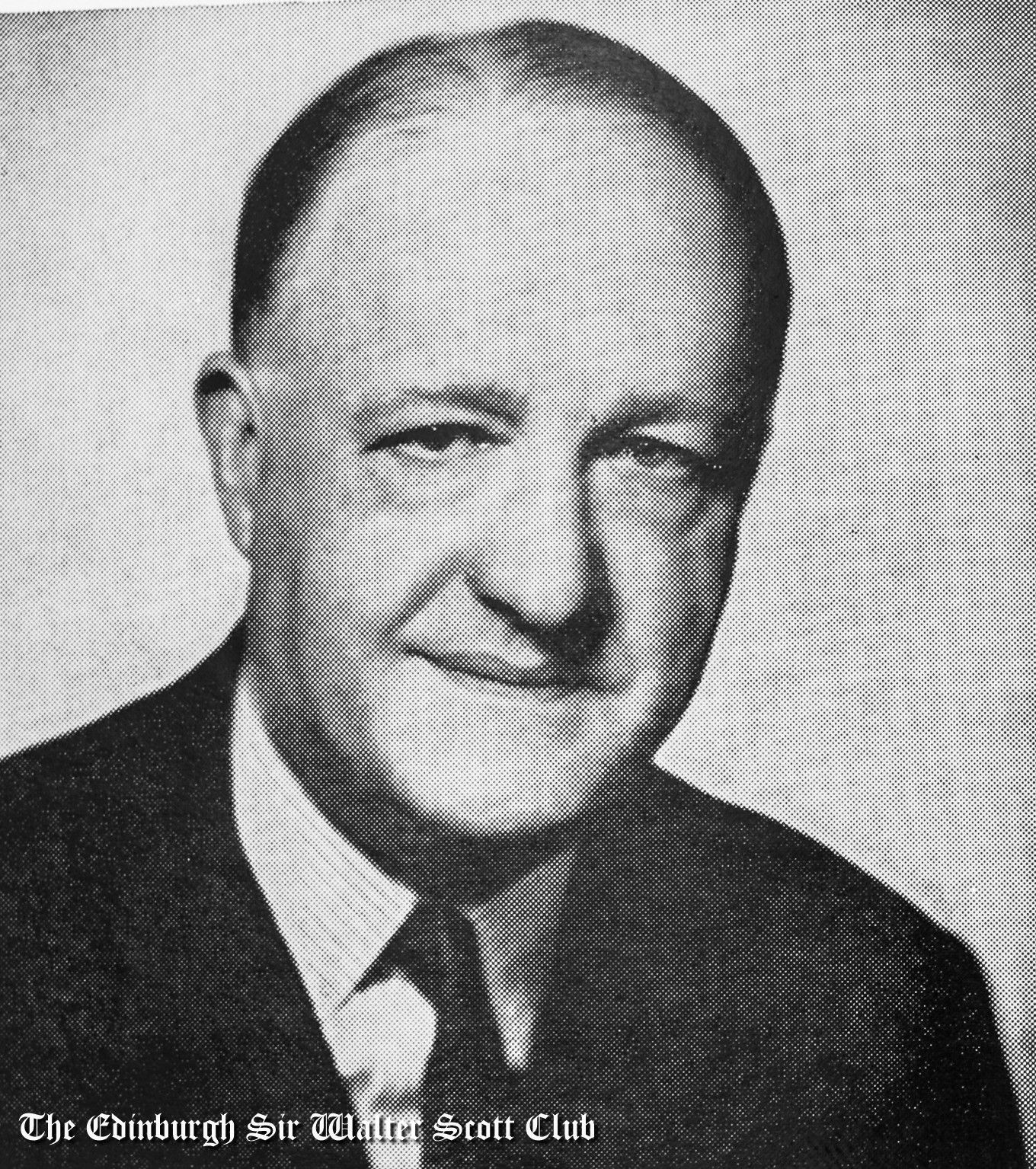1958
Our President in 1958/59 was:
The Right Hon. R. A. Butler
He proposed the Toast to Sir Walter at our 51st Annual Dinner on Friday 6th March 1959 in The North British Hotel
Download the [transcript] or read the [bulletin]
Summary of the Speech:
R. A. Butler, reflecting on his personal connection to Edinburgh and his uncle Sir George Adam Smith (Club President in 1930), opened with humility about his literary knowledge compared to his predecessor. As President of the Royal Society of Literature, he celebrated Scott not only for his literary genius but also as a symbol of Scottish character—evoking landscape, history, and moral virtues.
Central Theme – Loyalty:
Butler centred his speech on
loyalty, arguing it was an underexplored but fundamental virtue in Scott’s life and works. He cited Sydney Smith’s view of loyalty as key to English happiness and explored how Scott used fiction to model this virtue in various forms:
- Feudal Loyalty: Evan Dhu (Waverley), Dougal Cratur (Rob Roy), and Bailie McWheeble.
- Political/Cause-Based Loyalty: Jacobitism in Redgauntlet and the Covenant in Old Mortality.
- Feminine Loyalty: Jeannie Deans in The Heart of Midlothian.
- Tragic Loyalty: Hamish in The Highland Widow.
He considered The Legend of Montrose and The Fair Maid of Perth as the most loyalty-suffused novels, even though the word "loyalty" is rarely used directly. In these, Scott explored loyalty's contradictions—embodied in characters like Sergeant More Macaplin (a loyal Jacobite and supporter of King George) and Montrose himself.
Scott’s Relevance to Modern Life:
Butler connected Scott’s storytelling with contemporary life, comparing the appeal of Scott’s adventurous plots to the structure of modern television dramas. He urged the Club and Royal Society of Literature to “popularise the best in our classical legacies” by dressing them in “modern garb”—as Scott had done with history.
Scott’s Personal Loyalty – Especially to Dogs:
A heartfelt section covered Scott’s devotion to his dogs, including Camp, Maida, Douglas, Percy, and the deerhounds Ben and Buscar. Butler quoted Scott’s journals on the emotional toll of losing his dogs and included a poetic excerpt from
Waverley. Disraeli’s description of Scott surrounded by his terriers in his library illustrated his humane side.
Final Reflection:
Butler concluded with a timeless tribute to Scott’s embodiment of virtues that transcend eras. Though Scott could not predict the future, he crystallised virtues like loyalty that make nations great. Butler closed by highlighting Scott’s willingness to sacrifice himself for what he believed in.
Interesting Points to Note
- Personal Connection: Butler’s uncle, Sir George Adam Smith, was a past President of the Club.
- Historical Reflection: He argued that Scott helped overcome myths of Scottish barbarism, showing the civilising power of narrative.
- Political Commentary: He subtly addressed 1950s British governance, linking Scott’s character dynamics to parliamentary disloyalties.
- Canine Companions: Rare attention was paid to Scott’s affection for dogs, showcasing a warm, personal side.
- Disraeli Anecdote: Vivid portrayal of Scott at home in Abbotsford, surrounded by terriers, left a memorable image.
- Use of Dialect: The speech included rich Scots dialogue (e.g., Mrs Howden in The Heart of Midlothian), showing linguistic sensitivity.
Download the [transcript] or read the [bulletin]

Subsidiary Toasts
The toasts of “The Queen” and “The Royal Family” were duly honoured.
Thereafter The Right Hon. The Earl of Haddington, K.T., M.C., T.D., proposed the toast of “The Imperial Forces” to which Lieut.-General Sir George Collingwood, K.B.E., C.B., D.S.O., replied.
“The City of Edinburgh” was proposed by Professor T. B. Smith, Q.C., D.C.L., F.B.A., and replied to by The Right Hon. Sir Ian A. Johnson-Gilbert, C.B.E., LL.D., Lord Provost of The City of Edinburgh.
The toast of “The Chairman” was proposed by Sir John H. F. McEwan, Bart., of Marchmont.


